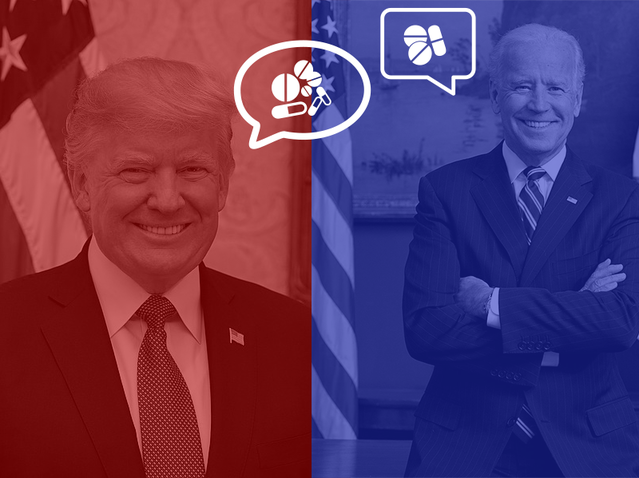Harm Reduction
Election 2020: Drug Courts Aren’t the Solution
How do the candidates drug policy platforms match up?
Posted October 23, 2020

I have been meaning to blog about where the political candidates rank in terms of tackling the overdose crisis for a while now. With just over a week to go until election night, I figured now is probably the best time to get in my two cents.
So, where do the two candidates stand on harm reduction? Both get abysmal ratings from me. The fact is Joe Biden and Donald Trump’s plans are virtually identical; with focuses on treatment for users and increased enforcement against those who traffic drugs. Essentially, both campaigns refuse to engage with the idea of accepting drug use and ending overdose in the process. The lack of a harm reduction platform in both campaigns signals to me that neither campaign is serious about tackling the overdose crisis.
While Donald Trump did declare the opioid crisis to be a national emergency, he has done little else to tackle the problem. His administration continues to fight safe consumption sites, they have not made meaningful investments in syringe exchanges (the Obama administration made it easier for the CDC to fund syringe exchanges—provided that no actual syringes were bought using the funds), and the government continues to prosecute drug-induced homicide laws at a federal level. His administration has put in funding to expand treatment—but this has yet to be independently assessed as to whether or not treatment has actually expanded.
Joe Biden’s plan is not that much better. It mostly omits harm reduction (but makes reference to allowing local governments to use funds for syringe exchanges and safe station initiatives) and sounds like a plan to tackle drug overdose from 2009. It is terribly outdated and by mentioning issues around prescription opioids, cracking down on the supply chain, and improving access to treatment—it does nothing to tackle the overdose crisis. Biden’s plan would merely maintain the abysmal status quo.
But I do want to take a moment to mention one thing that keeps coming up. Biden has proposed the idea of using drug courts to divert people who use drugs into treatment rather than prison. It must be said that this is not a new idea—many jurisdictions in the United States have already operated drug courts—nor is this, in the view of many, a rather helpful concept. Drug courts are punitive and coerce people into treatment. As the Drug Policy Alliance notes in this report, research has shown that drug courts are not effective and may actually be counterproductive. Courts often have restrictive conditions, may punish relapse with incarceration, and may not permit people to use methadone but instead be completely abstinent.
Drug courts do not meet people where they are. They do not show empathy—instead, they judge people for their drug use and treat them like a problem to be solved, rather than people who deserve dignity, kindness, and respect. They merely perpetuate stigma and stigma prevents people from being open with their drug use. It forces people to use drugs in ways that may not be safe. More people in this country may die this year of overdose than in any other year in recent history. To truly stop the overdose crisis, we need a harm reduction approach that accepts drug use, not one that penalizes it.


